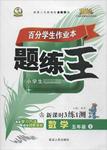题目内容
The golden red sun was setting when a gentle breeze(微风) blew through Jennifer’s hair. She was on the beach, looking up at the fiery (火红的) ball. She was amazed by its color, deep red in the middle, softly fading into yellow. She could hear nothing but the waves and the seagulls flying up above in the sky.
The atmosphere relaxed her. After all she had been through, this was what she needed. “It’s getting late,” she thought, “I must go home. My parents will be wondering where I am.”
She wondered how her parents would react, when she got home after the three days she was missing. She kept on walking, directing herself where she spent every summer holiday. The road was deserted. She walked slowly and silently. Just in a few hundred meters she would have been safe in her house.
It was really getting dark now. The sun had set a few minutes before and it was getting cold too. She wished she had her favorite sweater on: it kept her really warm. She imagined having it with her. This thought disappeared when she finally saw her front door. It seemed different. Nobody had taken care of the outside garden for a few days. She was shocked: her father was usually so strict about keeping everything clean and tidy, and now... It all seemed deserted. She couldn’t understand what was going on.
She entered the house. First, she went into the kitchen where she saw a note written by her father. It said: “Dear Ellen, there is some coffee ready. I went looking.” Ellen was her mother but — where was she? On the right side of the hallway was her parents’ room. She went in. Then she saw her. Her mother, lying on the bed, was sleeping. Her face looked so tired, as if she hadn’t slept for days. She was really pale. Jennifer would have wanted to wake her up but she looked too tired. So Jennifer just fell asleep beside her. When Jennifer woke up, something was different... she wasn’t in her mother’s room and she wasn’t wearing the old clothes she ran away in. She was in her cozy bed in her pajamas (睡衣).
It felt so good being back home. Suddenly she heard a voice, “Are you feeling better now, dear? You know you got us very, very scared.”
56. The writer describes the beautiful sunset to show Jennifer’s ______.
A. love of the natural beauty B.depression of being alone
C. intention of becoming independent D. desire of getting back home
57. What does the underlined phrase “This thought” most probably mean?
A. The idea of going back home.
B. Her anxiety about her parents.
C. The feeling of being warm in her favorite sweater.
D. The feeling of getting back home safely.
58. Her father didn’t take care of the garden because ______.
A. he no longer enjoyed working in the garden
B. he was not strict with his job
C. he had to look after his wife
D. he was busy looking for her
59. What can we infer from this passage?
A. Having experienced a lot outside, Jennifer felt home was safest for her.
B. When she found the garden deserted, she realized she was wrong.
C. As Jennifer walked towards home, she became increasingly scared.
D. In fact Jennifer’s mother had been sick for several days.
DCDA

 世纪百通主体课堂小学课时同步达标系列答案
世纪百通主体课堂小学课时同步达标系列答案 世纪百通优练测系列答案
世纪百通优练测系列答案 百分学生作业本题练王系列答案
百分学生作业本题练王系列答案
Body language is the quiet, secret and most powerful language of all! It speaks 36 than words. According to specialists, our bodies send out more 37 than we realize. In fact, non-verbal communication(非言语交际) takes up about 50% of what we really 38 , And body language is particularly 39 when we attempt to communicate across cultures(文化). Indeed, what is called body language is so 40 a part of us that it's actually often unnoticed. And misunderstandings occur as a result of it. 41 , different societies treat the 42 between people differently. Northern Europeans usually do not like having 43 contact(接触)even with friends, certainly not with 44 . People from Latin American countries, 45 , touch each other quite a lot. Therefore, it's possible that in 46 , it may look like a Latino is 47 a Norwegian all over the room. The Latino, trying to express friendship, will keep moving 48 . The Norwegian, very probably seeing this as pushiness, will keep 49 - which the Latino will in return regard as 50 _.
Clearly, a great deal is going on when people 51 . And only a part of it is in the words themselves. And when parties are from 52 cultures, there's a strong possibility of 53 . But whatever the situation, the best 54 is to obey the Golden Rule: treat others as you would like to be 55 _.
| 【小题1】 |
|
| 【小题2】 |
|
| 【小题3】 |
|
| 【小题4】 |
|
| 【小题5】 |
|
| 【小题6】 |
|
| 【小题7】 |
|
| 【小题8】 |
|
| 【小题9】 |
|
| 【小题10】 |
|
| 【小题11】 |
|
| 【小题12】 |
|
| 【小题13】 |
|
| 【小题14】 |
|
| 【小题15】 |
|
| 【小题16】 |
|
| 【小题17】 |
|
| 【小题18】 |
|
| 【小题19】 |
|
| 【小题20】 |
|
D
You may picture firefighters holding a hose (水管) outside of a burning building, but the Golden Eagles Hotshots don’t fight fires quite that way. When they go into action, you may not even see a fire truck.
The Hotshots are firefighters who battle fires in wildness areas. But don’t think you’ll only find them in their home state California. Wherever there is a national wildfire emergency, the Golden Eagles Hotshots could be there.
But these firefighters don’t work the same way as firefighters in a big city. They work in areas where there are a large number of trees, bushes, and grass. They climb up and down steep hills to clear brush and burnable debris(残骸). They sometimes use water, but they often fight fire with fire!
They do that by lighting what are called “backfires,” which are small, controlled fires that burn up fuel in the path of large wildfires. That way, when the wildfire gets there, it has nothing to burn and nowhere to go, because all the burnable fuel has already gone up in smoke.
The Hotshots also clear away fuel using old-fashioned hard work. For example, they use a saw to cut away trees and heavy brush that could catch fire.
Of course there are times when the Golden Eagles Hotshots do have trucks to supply water to the fires. But the water is limited, and these guys have to rely on hard work more than anything. Physical fitness is very important. They have to be in great physical shape to handle steep hills and difficult terrain(地形) while carrying a 60-pound pack.
The Golden Eagles Hotshots definitely work hard for their pay. But thanks to their efforts, many lives have been saved, many houses have not burned, and countless trees are still standing.
1.67. The firefighters mentioned in the passenger.
|
A.do much of their work in California |
|
B.avoid climbing steep hills in their work |
|
C.do their work equipped with advanced tools. |
|
D.carry out their work mostly in forests and mountains. |
2.68. According to the passage, why do the firefighters light “backfires”?
|
A.To signal for help. |
B.To remove obstacles. |
|
C.To protect trees and bushes. |
D.To prevent the fire from spreading. |
3.69. What can we learn about the Golden Eagles Hotshots?
|
A.They are firefighters working in big cities. |
|
B.Their work requires physical strength. |
|
C.They are voluntary firefighters working for free. |
|
D.They usually hold a hose to put out the fires. |
4.70. What is the author’s attitude towards the Golden Eagles Hotshots?
|
A.Appreciative |
B.Doubtful |
C.Worried |
D.Critical |

 and make a lifelong friend.
and make a lifelong friend. the neighborhood. Are strange people carrying expensive things out of one neighbor’s house? Have several days passed since your elderly neighbor last collected his newspaper? The benefit of keeping an eye out for unusual behavior in the neighborhood is that others will do the same for you.
the neighborhood. Are strange people carrying expensive things out of one neighbor’s house? Have several days passed since your elderly neighbor last collected his newspaper? The benefit of keeping an eye out for unusual behavior in the neighborhood is that others will do the same for you.